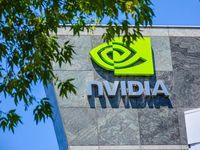Nvidia Corp. shares experienced a significant decline of more than 7% on Thursday, April 3, 2025, following a downgrade from HSBC, which cited diminishing pricing power for the chipmaker's high-end graphics processors. HSBC lowered its rating on Nvidia from "Buy" to "Hold" and reduced its price target from $175 to $120, reflecting concerns that the company's ability to command premium prices for its AI-focused graphics processing units (GPUs) may be reaching its limits.
As of 10:53 a.m. Eastern Time on the same day, Nvidia shares were trading at $102.62, down $7.81, or 7.07%. The downgrade came from HSBC analyst Frank Lee, who noted that Nvidia's latest product cycles, particularly the B200 and B300 GPU models, show limited pricing upside. Lee pointed out that there have been no significant average selling price increases between these models and their predecessors, the GB200 and GB300 systems based on the NVL72 rack architecture.
Looking ahead, the upcoming Vera Rubin platform is expected to maintain the current GPU count of 72 per rack, similar to the existing Blackwell design. Lee indicated that this configuration is unlikely to change until the introduction of Rubin Ultra in 2027, which further constrains Nvidia's ability to enhance pricing in the interim. In a notable shift, HSBC had upgraded Nvidia in April 2023, believing that the company’s AI GPU pricing power and product mix were undervalued by the market. However, the firm has now revised its outlook, citing limited near-term catalysts for earnings growth and downward adjustments to its fiscal 2026 estimates.
Lee also raised broader market concerns, suggesting a potential slowdown in demand from cloud service providers and a possible deceleration in orders from the Chinese AI firm DeepSeek. While there are long-term opportunities in robotics and autonomous systems that could expand Nvidia's total addressable market, Lee anticipates that growth will moderate in the near term.
In addition to HSBC's downgrade, Oppenheimer & Co. Inc. disclosed a 4.1% reduction in its position in Nvidia during the fourth quarter of 2024. The firm owned 1,247,815 shares after selling 52,861 shares during the quarter. Nvidia now accounts for 2.5% of Oppenheimer's investment portfolio, making it the firm's third-largest position, valued at $167,569,000 at the end of the most recent reporting period.
Other institutional investors have also been active in adjusting their stakes in Nvidia. Legend Financial Advisors Inc. purchased a new position in shares of Nvidia valued at $34,000 in the fourth quarter, while Luken Investment Analytics LLC acquired a new stake worth $40,000. Lowe Wealth Advisors LLC also entered a new position valued at about $46,000. In a notable increase, 1620 Investment Advisors Inc. lifted its stake in Nvidia by 145.9% during the third quarter, now owning 418 shares worth $51,000. Similarly, Gleason Group Inc. boosted its position in shares of Nvidia by 52.9% in the fourth quarter, owning 428 shares worth $58,000.
As of now, hedge funds and other institutional investors collectively own 65.27% of Nvidia's stock. Insider trading has also been notable, with Donald F. Robertson, Jr., an insider at Nvidia, selling 4,500 shares in a transaction dated March 21, 2025, at an average price of $116.80, totaling $525,600. Following this transaction, he now owns 479,428 shares in the company, valued at approximately $55,997,190.40, reflecting a 0.93% decrease in his position.
Another insider, Director John Dabiri, sold 2,663 shares on March 10, 2025, at an average price of $110.00, resulting in a total transaction of $292,930. After the sale, he owns 17,279 shares in the company, valued at $1,900,690, marking a 13.35% decrease in his ownership. In total, insiders have sold 183,609 shares of Nvidia stock worth $22,642,615 in the last three months, representing 4.23% of the stock owned by company insiders.
Despite the recent downgrades, several analysts remain optimistic about Nvidia's future. Morgan Stanley set a target price of $162.00 on Nvidia and rated it "overweight" in a report dated March 19, 2025. KeyCorp established a price objective of $190.00 for Nvidia shares on the same day. Mizuho adjusted its target price from $175.00 to $168.00, maintaining an "outperform" rating on March 14, 2025. William Blair reaffirmed an "outperform" rating on March 20, 2025, while Truist Financial increased its price objective from $204.00 to $205.00, giving Nvidia a "buy" rating on February 27, 2025.
As it stands, five research analysts have rated Nvidia with a hold rating, while thirty-six analysts have given it a buy rating and two have issued a strong buy rating. According to data from MarketBeat.com, the stock currently holds an average rating of "Moderate Buy" with an average target price of $169.89.
Nvidia's stock performance has seen fluctuations, opening at $101.80 on Friday, April 4, 2025. The company has a market capitalization of $2.48 trillion, with a debt-to-equity ratio of 0.13, a quick ratio of 3.64, and a current ratio of 4.10. Over the past year, Nvidia shares have seen a low of $75.61 and a high of $195.95. The firm also recently announced a quarterly dividend, which was paid on April 2, 2025. Investors of record on March 12, 2025, received a dividend of $0.01, translating to an annualized dividend of $0.04 and a yield of 0.04%. The ex-dividend date for this payment was March 12, 2025.
Nvidia Corporation continues to provide graphics, compute, and networking solutions globally, with segments that include GeForce GPUs for gaming, enterprise workstation graphics, and automotive platforms for infotainment systems. As the company navigates market fluctuations and changing investor sentiments, its future will likely hinge on its ability to innovate and adapt in a rapidly evolving technological landscape.





